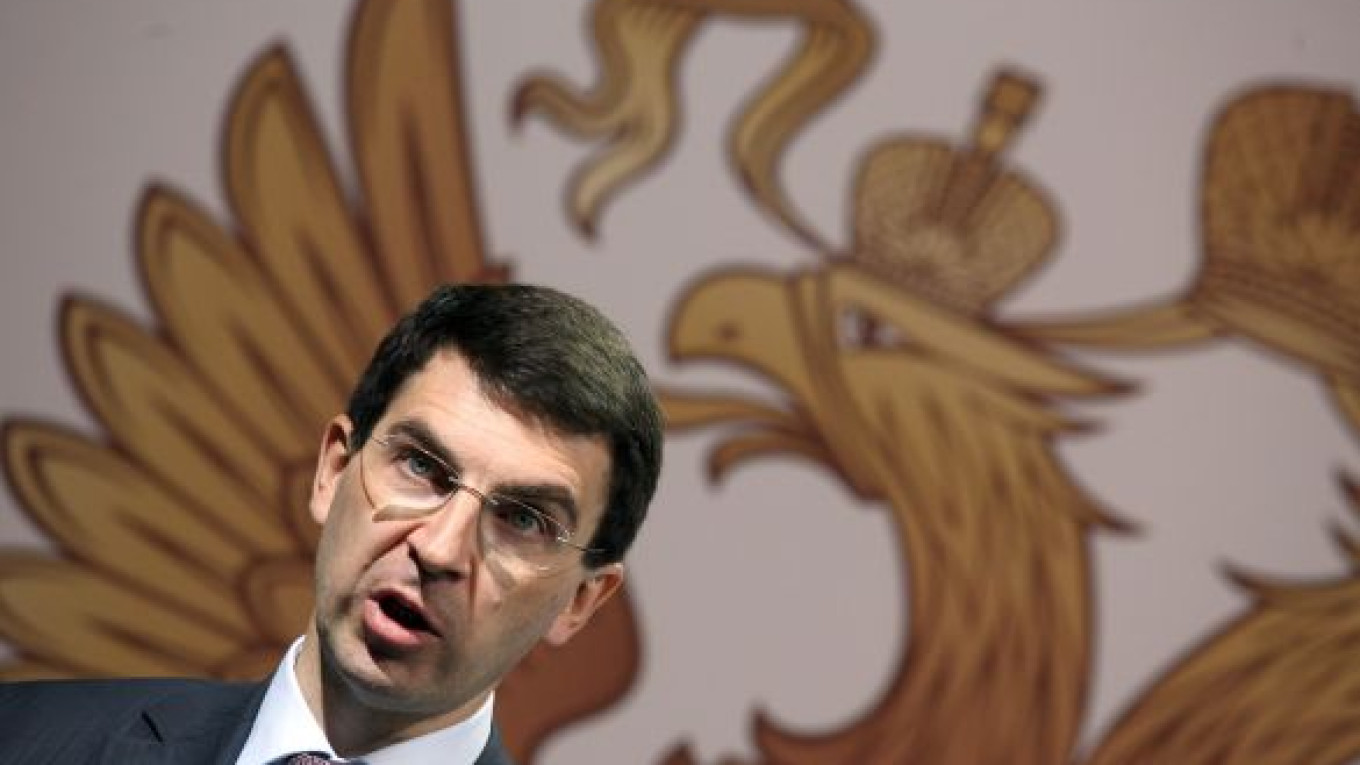Communications and Press Minister Igor Shchyogolev has registered his concern over worsening cell phone reception in Moscow, which mobile operators attribute to the introduction of third-generation networks.
"We've had a ton of complaints from consumers — something's happening with the reception in Moscow. There hasn't been such a landslide in new subscribers to justify the decline in reception quality," Shchyogolev said Monday.
He suggested that mobile operators were removing base stations, resulting in coverage gaps, or that increased data streams were cutting into voice traffic. The Communications and Press Ministry will monitor the situation, he said.
Spokespeople for the three largest cell phone operators — Mobile TeleSystems, VimpelCom and MegaFon — said they had not received more complaints, although they noted that reception could worsen in the capital because of the introduction of 3G networks.
The old 2G networks, which run GSM, are being replaced with new 2G/3G equipment, said Natalya Menshutina, a spokeswoman for VimpelCom in Moscow and the surrounding region. The work can lead to brief losses in traffic because the stations are temporarily taken off line, she said.
MegaFon spokeswoman Tatyana Ivanova said intensive work to build a 3G network in Moscow had caused insignificant data flow problems. Small fluctuations in the strength of cell signals are possible during the changeover to 3G, but they are uncommon, MTS spokeswoman Irina Osadchaya said.
Complaints about reception quality are among the most common sent to the Federal Communications and Mass Media Inspection Service, a spokesman said, declining to elaborate on the number. Cell reception is not monitored because there are no legal norms or guidelines, he said.
Shchyogolev linked the quality of cell phone service to possible frequency "re-farming," which the chief executives of the Big 3 mobile operators asked him about last week. They would like to use frequencies that they were licensed to use for mobile communications technologies, such as GSM and CDMA, and MMDS television to build fourth-generation LTE networks.
If the Communications and Press Ministry allows the operators to use GSM frequencies for LTE, "all frequencies will be dedicated to data, and it's an open question what would happen with voice traffic," Shchyogolev said. "They think about technology — we think about consumption."
But the operators said those concerns were misplaced.
VimpelCom has tested the possibility of operating 3G networks in the 900 MHz to 1,800 MHz range, which is now used for GSM, spokeswoman Anna Aibasheva said. The results were positive, and VimpelCom sent them to the General Radio Frequency Center, a federal state unitary enterprise that deals with regulations for the industry, she said.
When GSM frequencies are re-farmed for 3G networks, the possible losses in voice traffic are minimal, Aibasheva said, since the capacity of 3G networks is greater, she said, adding that it should not hurt GSM networks, either.
The Federal Communications and Mass Media Inspection Service does not plan to ban Skartel, which operates the Yota brand, and state-run Rostelecom from building LTE networks using frequencies that they were given for WiMax networks, provided that the technical specifications of the equipment used do not change, Sergei Sitnikov, the service's head, recently said.
But the companies could face problems if their networks, and particularly their frequency bandwidths, do not correspond to the LTE standard, which the General Radio Frequency Center could approve this year.


